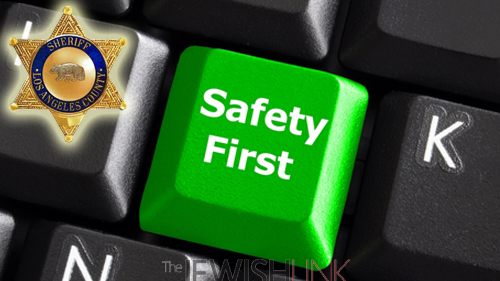
Child Safety Internet Awareness advice from the Los Angeles Sheriff’s Department
The Internet has opened up a world of information for anyone with a computer and a connection. Your children will learn about computers. As a parent, it is your responsibility to make sure your child stays safe online. Too many dangers from pedophiles to con artists can reach children (and adults) through the Internet.
GETTING STARTED
Explain that although a person may be alone in a room using the computer, once logged on to the Internet, he or she is no longer alone. People using the Internet can find out who you are and where you are. They can even tap into information in your computer. Set aside time to explore the Internet together.
CONTROLLING ACCESS
The best tool a child has for screening material found on the Internet is his or her brain. Teach children about exploitation, pornography, hate literature, excessive violence, and other issues that concern you, so they know how to respond when they see this material. Choose and download a commercial online service that offers parental control features on all your devices. These features can block contact that is not clearly marked as appropriate for children; chat rooms, bulletin boards, news groups, and discussion groups; or access to the Internet entirely. Purchase blocking software and design your own safety system. Different packages can block sites by name, search for unacceptable words and block sites containing those words, block entire categories of material, and prevent children from giving out personal information. Monitor your children when they’re online and monitor the time they spend online.
TELL YOUR CHILDREN
· To always let you know immediately if they find something scary or threatening on the Internet.
· Never to give out their name, address, telephone number, password, school name, parents’ name, or any other personal information.
· Never to agree to meet face to face with someone they’ve met online.
· Never respond to messages that have bad words or seem scary or just weird.
· Never to enter an area that charges for services without asking you first.
· Never to send a picture of themselves to anyone without your permission.
· Once a picture, a message, a post is sent, it cannot be retrieved and will remain on the internet virtually forever.
· It’s okay to say no and to never let anyone pressure them into doing something they feel uncomfortable doing.
· That everything they read or see on the internet may not be true and that people online may not be who they seem.
WHAT YOU CAN DO IN THE COMMUNITY
Make sure that adults monitor access to the Internet at your children’s school. Know your children’s friends and their parents. Set reasonable rules for computer use and discuss them with your children. Investigations have shown that children will likely have a social media page whether you approve or not, so it is imperative that you teach them internet safety. If your child’s friend has Internet access at home, talk to the parents about the rules they have established. Find out if the children are monitored while they are online. If your child receives threatening e-mails or pornographic material, save the offensive material and contact that user’s Internet service provider and your local law enforcement agency. If you come across sites that are inappropriate for children when you are surfing the Net or become aware of the transmission, use, or viewing of child pornography while online, report it to the National Center for Missing and Exploited Children.